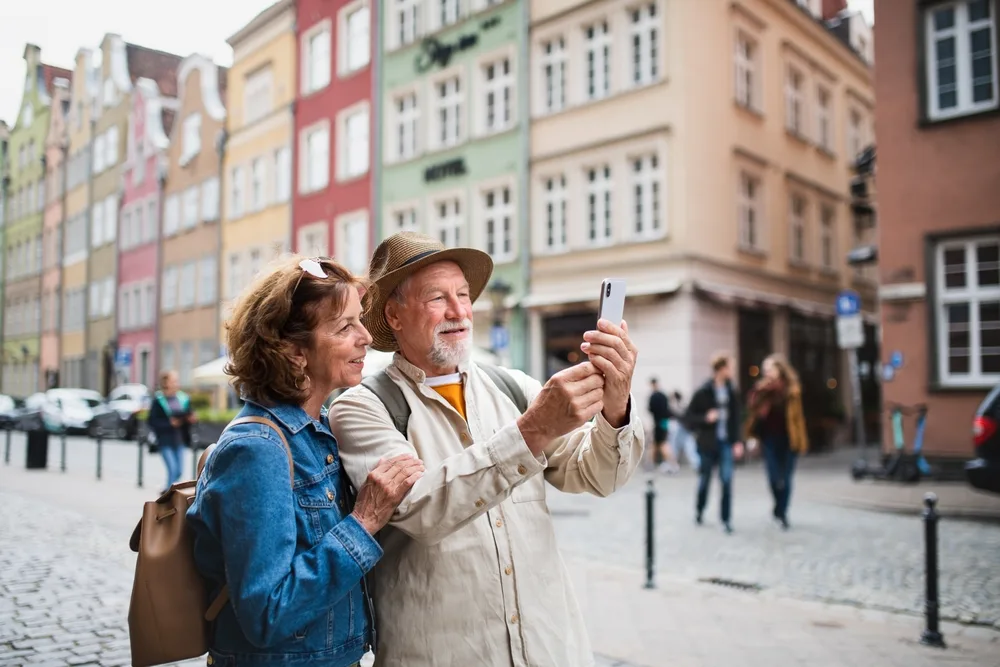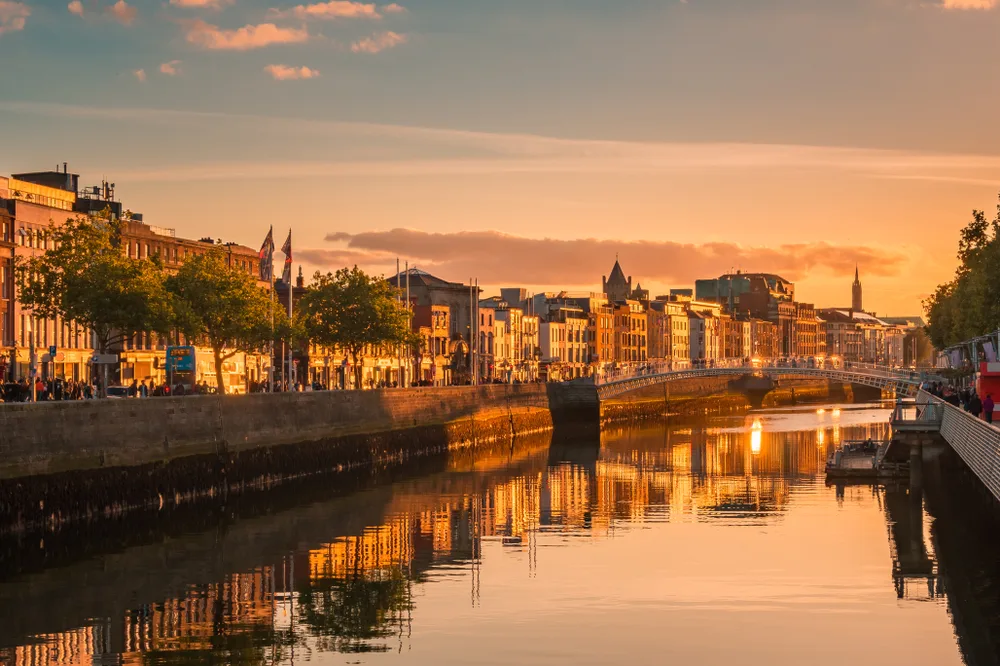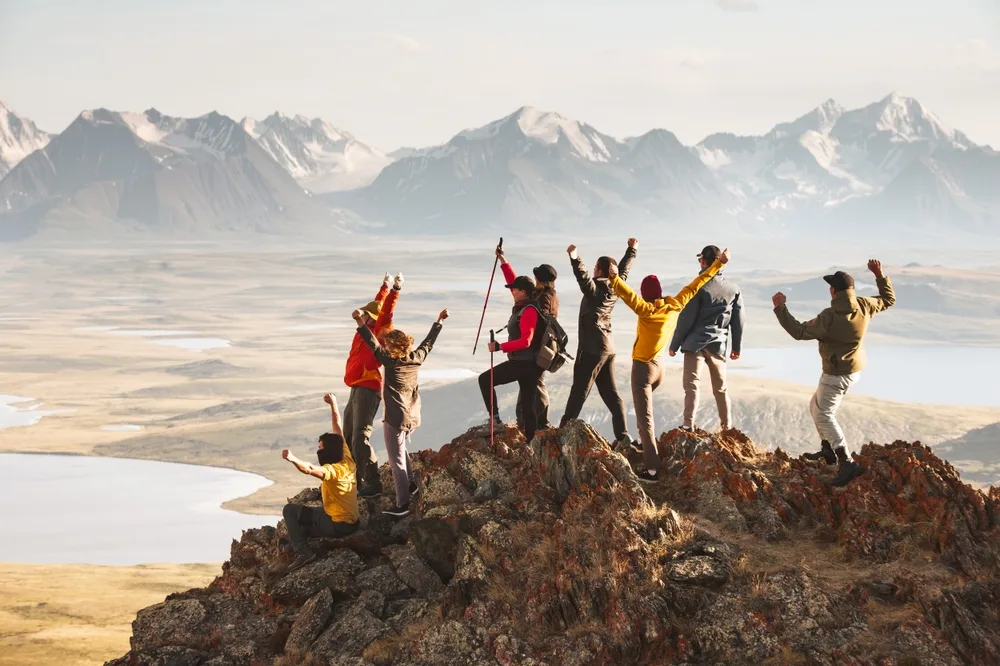Learning the lingo: how holidaymakers overcome language barriers

Ordering a coffee, finding the bus stop, or explaining you have an allergy can turn a necessary holiday interaction into an awkward exchange. And while it's easy to promise yourself you'll master the local language before take-off, how many of us actually do?
To find out, here at JustCover we surveyed holidaymakers about how they learn languages, their confidence levels and go-to methods of communicating when abroad. The results reveal how many of us get by in other countries, from learning the basics to relying on ChatGPT or Google Translate.
Do travellers learn the local language before going abroad?
Nearly half of travellers (46%) say they learn a few basics before jetting off. From pleasantries like “please” and “thank you” to greetings and goodbyes, ensuring you have some of these in the bank can go a hugely long way to smoothing everyday exchanges while you explore a new country. Only one in ten (11%) say they prepare “extensively”, using language-learning apps, phrasebooks or blog posts to prepare ahead of their trip.
At the other end of the spectrum, over two-fifths (43%) of travellers confess to ‘winging it’ completely, either relying on technology like Google Translate once they land or saying they don’t learn any phrases at all.
Frequent travellers are the most proactive: One in six (15%) of those who go abroad multiple times a year say they prepare in depth – the highest share of any group - showing that travel experience makes people value language skills more.
There are generational differences too. Just 7% of Gen Z say they don’t prepare at all, compared to 29% of those aged 61-79, meaning older travellers are four times more likely to land in a country armed with no local lingo.
Interestingly, those who didn’t learn a foreign language at school are nearly twice as likely not to learn any local phrases before a holiday (20% vs. 12%). Still, the appetite for conversing in the local tongue is clear – 78% of those who did study a language and 62% of those who didn’t say they wish they felt more confident communicating abroad.

Why learning local phrases matters when abroad
Beyond practicality, it's emotions and etiquette that drives us. Over half of travellers (55%) believe it’s disrespectful not to at least learn some local phrases, while 53% admit they feel embarrassed if they don’t.
Despite the fact that 77% wish they were more confident conversing abroad, and three quarters (75%) find trips more enjoyable when they know a few phrases, many still take shortcuts. Almost two-thirds (65%) rely on hand gestures and pointing, and over half (53%) just try to speak louder or slower in English instead.
What kinds of technology do travellers use to communicate abroad?
When memory or knowledge fail, most travellers reach for their phones. Nearly four in five travellers (79%) use Google Translate, where you can download incredibly handy language packs to your phone for offline use and translate nearly 250 languages.
Younger travellers lead the way with technology usage too, with two-fifths of Gen Z (42%) and 45% of Millennials saying they’ve turned to an AI tool like ChatGPT to communicate abroad – twice as many as Baby Boomers (21%).
It comes as no surprise then that previous studies have shown that AI tools can boost traveller confidence in communication – so perhaps as these large language models continue to progress, we’ll see more travellers utilising them to communicate abroad.
The most useful travel phrases holidaymakers wish they knew
Which local phrases do travellers most want to learn before their trip? Here are the top five:
- Please / Thank you – 53%
- Hello / Goodbye – 45%
- Do you speak English? – 38%
- Excuse me / Sorry – 33%
- How much does it cost? – 31%
Surprisingly, just one in ten travellers say they wish they’d known how to say “I need a doctor” - even though 28% admit that visiting a pharmacy or doctor abroad is one of their most anxiety-inducing situations and a startlingly small 7% say they could explain their needs clearly if they had a medical condition they needed to discuss.
Other anxiety-inducing language barriers include:
- Asking for directions – 35%
- Ordering food and drinks – 30%
- Making small talk – 28%
- Arranging taxis or transport – 25%
Linguistics research shows that spontaneous exchanges abroad often feel harder than planned ones, which helps explain why things like asking for directions or making small talk feature highly in the list.
The top 25 fastest-growing languages to learn in 2025
While our research shows exactly how travellers are and aren’t preparing ahead of their own trips, data from Google looking at global searches for ‘learn language’ also reveals which languages people are most keen to take up.
The fastest growing language is Catalan, which has seen a 114% surge in searches for learning it year-on-year. Interestingly, over half of the top 25 are indigenous, minority or regional heritage languages – indicating growing global appetite for cultural preservation.
From European destinations like Ireland’s misty coasts where Gaeilge is spoken and the historic Basque country, to the islands of Samoa and Hawaii or the deserts of the Navajo Nation in the American Southwest, it’s amazing to see that learners are looking far beyond the more widely spoken languages and that the global population are interested in keeping these languages alive.
Whatever language you’re tackling, make sure your trip is covered, and purchase comprehensive travel insurance before take-off. It’s quick, clear and there when you need it most.
Methodology
We partnered with 3Gem to conduct this survey. A nationally representative sample of 2,000 adults (1,500 in the UK and 500 in ROI) who had travelled abroad for leisure in the past 12 months took part. The sample sizes reflect the relative population sizes of each country. Quotas were applied to ensure representation across age, gender, and region.
Data is accurate as of August 2025.
Full UK and Ireland data at a glance
The full aggregated data set, including 1,500 UK respondents and 500 IE respondents, is available upon request – and below you can find the full dataset comparison of statistics used in the content above.
Get a quick travel insurance quote
Affordable travel insurance for all your needs
Discover the World
Stay up to date with the latest travel tips and advice

Ireland’s best cities for fireside cosiness this winter

Age is no barrier: over-55s embrace adventure holidays
